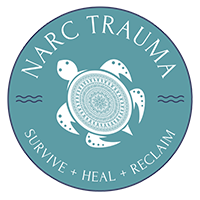Why Can’t I Stop Thinking About It? Understanding Rumination After Narcissistic Abuse

By Brenda Stephens, Licensed Professional Clinical Counselor
Have you ever found yourself stuck in the same mental loop? Replaying arguments. Rewriting your responses. Questioning what really happened. Searching for the moment it all went wrong.
This isn’t just overthinking. This is rumination.
And if you’re a survivor of narcissistic abuse, it’s likely a pattern you know all too well.
Rumination is a trauma response. It’s your brain’s attempt to make sense of something that felt senseless. To find answers where there were only lies. To create meaning in a relationship built on manipulation and distortion.
It is exhausting. It can feel endless. And it is completely normal after what you’ve been through.
What Is Rumination?
Rumination is the repeated replaying of distressing thoughts, memories, or conversations in an attempt to resolve them. Survivors of narcissistic abuse often ruminate because they were never given closure, clarity, or honesty. Instead, they were met with gaslighting, blame-shifting, and emotional chaos.
You may find yourself:
Obsessing over things you said or didn’t say
Reanalyzing your narcissist’s behavior, trying to understand their motives
Wishing you could go back and change how it ended
Rehearsing imaginary conversations that might bring closure
Trying to explain the abuse in a way that finally makes it make sense
These mental loops don’t just steal your peace. They can keep you stuck in the trauma, long after the relationship has ended.
Why It Happens After Narcissistic Abuse
Narcissistic abuse creates confusion. It erodes your trust in your own perceptions. Over time, your nervous system becomes wired to scan for danger, interpret mixed signals, and prepare for emotional fallout.
So when the relationship ends, your mind doesn’t just shut off. It keeps working overtime, trying to make sense of what you endured. It’s as if your brain is searching for a resolution that will allow you to finally rest.
But with narcissistic abuse, that resolution never comes. Because the narcissist never operated within a framework of truth or mutual understanding.
As painful as this is to realize, it is also freeing. Because if the problem was never your lack of insight or understanding, then the solution isn’t found by continuing to think it through.
The Truth About Closure
Closure doesn’t come from finally getting answers. It comes from accepting that some people will never be honest, never take accountability, and never offer you the peace of knowing why.
You don’t need their apology. You don’t need their permission to move on. And you don’t need to keep reliving the pain in order to heal it.
What you need is a way to interrupt the mental loop and return to yourself. To your safety. To your healing.
How to Break the Rumination Cycle
Here are six practical strategies you can begin using right now:
1. Name it for what it is.
When you notice yourself spiraling, say to yourself: This is rumination. This is a trauma response, not a problem I need to solve.
2. Practice nervous system regulation.
Rumination often reflects a dysregulated nervous system. Try grounding exercises like cold water on your hands, deep belly breathing, or walking outside to help reset your body and mind.
3. Set boundaries with your thoughts.
Instead of trying to stop the thoughts altogether, give them a time limit. Tell yourself, I’ll give this five minutes, and then I’m going to do something nourishing.
4. Write it down, then set it aside.
Journaling your thoughts can help externalize them. When they’re written down, they don’t need to keep spinning in your head.
5. Challenge the illusion of control.
Your brain may be trying to “fix” the past through thought. Gently remind yourself that understanding it more deeply won’t change what happened.
6. Focus on what is real now.
Rumination keeps you anchored in the past. Ask yourself, What do I need in this moment? Then take one small step toward meeting that need.
You Are Not Alone
Rumination can feel isolating. But you’re not the only one reliving these moments. This is a shared experience among survivors. And there is a path forward.
You are allowed to rest. You are allowed to release the mental replay. And you are allowed to stop searching for answers that were never yours to carry in the first place.
If this blog spoke to you, please share it with someone who may be struggling with the same exhausting loop. At the Stephens Therapy Associates, we help survivors reclaim their thoughts, their truth, and their peace.







